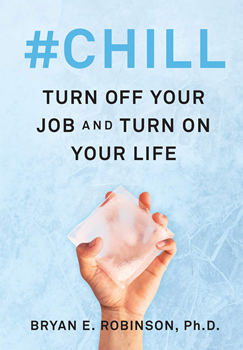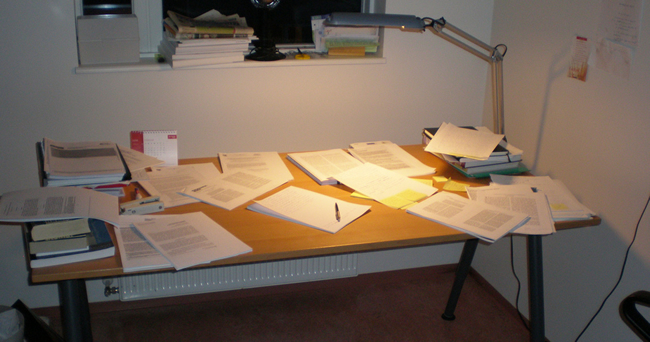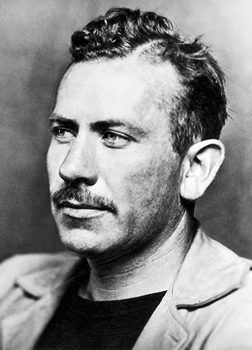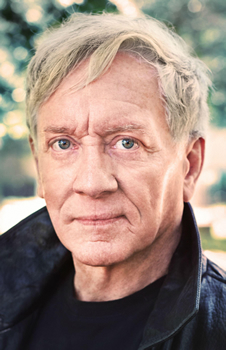

#Chill So You Can Deal by Bryan E. Robinson, PhD
Finding Your Writing Sweet Spot
“I find I am hurrying to get through my day’s work. It is a destructive suggestion. A book, as you know, is a very delicate thing. If it is pressured, it will show the pressure.” ~ John Steinbeck
When John Steinbeck’s editor urged him to work faster, he refused. He wrote in his journal that pressure to produce would damage his writing. Is it possible that slow burn writers like Steinbeck, Donna Tartt, Harper Lee, and Nelson DeMille have it right—that less is more?
What about your writing? Do you push yourself to write fast to appease your agent or publisher so they won’t drop you? Do you have a quick formula to pound out a storyline? Do you get nervous or jittery when away from your manuscript? When you write, are you clutched by fear, measuring your worth by page numbers instead of quality work? If you answered yes to some of these questions, it might be time for you to #Chill.
External Writing Demands
We all know good health and happiness depend on having proper balance between our professional and personal lives. In today’s hectic writing world, in which you must do more in less time with fewer resources, that goal can feel impossible to attain. Our 21st century work culture places more value on doing than being, on fast instead of slow. As technology moves at lightning speed, outside pressures from agents, publicists, and editors demand that you keep up the breakneck pace. And many writers—perhaps you’re one of them—have lost the ability to relax and balance their lives. The more you can cram into your schedule and the faster you can get things done, the better writer you are. Or so it seems. Raise your hand if you hit the ground running as soon as your feet touch the floor, checking your electronic leashes, slurping coffee, bolting to your writing desk to meet a tight deadline, worried if the publisher will like the finished product?
Many of you? I thought so.
#Chaos or #Chill?
As a writer, it’s likely that you’re more accustomed to chaos than chill. Perhaps you stay late at your writing desk rather than being with loved ones. Or you work into the night and on weekends to perfect that manuscript or just catch up, rather than relaxing or spending time with friends. Under constant pressure to over-perform, your job easily becomes the dominant force in your life.
#Chill isn’t just something you do like taking a nap, finding a hobby, or exercising. Although that’s a small part, there’s more. It’s a perspective—a mindful way of being present in the world, a byproduct of mindfulness meditation, contemplation, or finding stillness inside. In the #Chill state, you value being drawn (writing from inside out), instead of driven (writing from outside in). When you’re driven, you’re a slave to external circumstances and demands (hurrying, rushing, doing). When you’re drawn, you master your life from its center (your calm, clear being)—your True Self. That’s where your muse resides, the source of great writing.
The idea of #Chill might sound like a buzz kill—even counterproductive. Perhaps you cringe or panic at the thought of powering down. Or maybe you’ve grown so used to panic and frantic that it’s the new normal.
You don’t have to write your brains out to be a good writer. It’s counterintuitive, but a hurried and harried approach actually depletes your creative mojo and blunts the qualities it takes to be successful. Still, more writers are burning out, finding themselves in the position of having to learn this lesson all over again.
I know. I know. You’re probably rolling your eyes, glancing at your to-do list, booing and hissing. But I haven’t been sniffing the ink cartridge from my printer. I promise. In a culture that values speed, the state of #Chill is a hard sell. When everything around you moves at lightning speed, it’s easy to lose touch with your authentic writing self. And ultimately running with scissors becomes the norm.
Still, brain scans in the field of neurology show that #Chill has huge advantages with big payoffs for all of us. It can help you become a more self-reflective writer: find your voice, fine tune your unique style, and see what does and doesn’t work. Creative ideas come to you automatically when you’re moving furniture, pulling weeds, or taking a shower. And words organically emerge on their own when you’re out of your “thinking mind,” not when you’re squinting at the computer, sweat pouring from your brow, banging your fist and cursing the heavens when the words won’t come. This state of being humanizes your writing in a literary world that has increasingly become more dehumanized.
Think about the young Thailand boys in 2018 stranded in a cave. Or famed psychologist and writer Viktor Frankl (author of Man’s Search for Meaning), imprisoned in Auschwitz in 1944. Sure, your writing stress is nothing like what they went through. But if you’re like most writers, your version of the cave or death camp is surviving daily writing stress that can negatively affect you mentally and physically.
I mention the Thailand boys and Viktor Frankl for a reason. The young boys survived their ordeal by meditating and cultivating stillness to conserve their energy. Frankl also survived through meditation to take his mind away from the horror of prisoners dropping dead like flies around him. In both instances, they survived by taking charge of their minds instead of letting the external circumstances rule.
How Do You Get to #Chill?
As an advocate of mindfulness meditation, I am convinced that the best medicine to reach #Chill and writing success is a five-minute dose of meditation each day. There are 1,440 minutes in one day. Studies show that just five minutes of regular daily meditation puts you in a state of #Chill where you’re in charge of your busy mind so you don’t work your brains out and your brain doesn’t work you out. This state cultivates a peaceful center within you that unleashes your curiosity and creativity and has many other physical and mental benefits. Your heart and respiratory rates slow down. Muscles loosen. Your mind is calm, open, and clear. Decisions and actions are reflective, even, and balanced. Plus, you have better sleep, increased immunity, lower blood pressure, improved digestion, and greater emotional wellbeing. And that still leaves you 1,435 minutes to pen that barnburner in a calmer, clearer, and more creative way.
Meditation is portable and cost free. You can meditate anywhere you feel comfortable—at home, in your office chair, at your writing desk, or in your car (as long as you’re not driving). And all you need is yourself, plus five minutes a day. If you commit to this type of daily meditation long enough, you start to cultivate the state of present-moment awareness of #Chill.
The Eight “C” Words in the State of #Chill
You know you’re in #Chill when you’re in one or more of the following eight states of being, all of which start with the letter “C”:
- Calm: An unmistakable feeling of calm and loss of the ability to worry.
- Clarity: An overwhelming clear-mindedness and sense of direction.
- Curiosity: More curiosity with less interest in judging others or yourself.
- Confidence: A heightened ability to act from confidence instead of past hurts or future fears.
- Connection: A satisfying connection with loved ones, fellow writers, and yourself.
- Compassion: An increased susceptibility for compassion for loved ones, other authors, and yourself.
- Courage: Greater courage to welcome unpredictable situations and let them happen instead of make them happen.
- Creativity: Frequent bursts of creativity and unrestrained joy.
You can use these eight “C” words to become intentional about “being” instead of “doing” or about “slowing down” instead of “speeding up.” It would be a mistake to think that you can live in a perpetual state of #Chill. But the more you practice mindfulness meditation to still the stressors of your busy mind and center on the quiet places within yourself, the more you can access the #Chill state, even in times of upheaval.
The Sweetness of Doing Nothing
The Italians have an equivalent to the #Chill state: “il dolce far niente”—the sweetness of doing nothing. It doesn’t translate in the United States, where tasks and schedules define us. The closest translation we have is “killing time.” But “il dolce far niente” requires more of you: to intentionally let go and put being before doing as a priority.
Doing nothing has been compared to the integral pauses in a beautiful piece of music. Without the absences of sound, the music would be just noise. Once I watched a writer, arms outstretched from his side, balancing on an old sea wall. In that moment, with all the time in the world—no hurry to get anywhere or complete anything—all he cared about was navigating his body against the warm ocean breeze. Unbeknownst to him, his “il dolce far niente” was providing an incubation period for his embryonic writing ideas to hatch and come alive.
The past is over and done with, and the future hasn’t arrived. If you want to hone your craft, start taking time to indulge in the sweetness of being alive in the present moment with “sweet nothings.” Watch the grass grow, feel a soft breeze on your cheeks, smell the flowers you zip past on a daily basis. Take time to mindfully eat and taste each morsel of food. Listen to the buzzing bee outside your window.
Life happens in the present moment, and good writing does too. May you find that sweet spot where writing success and personal balance reside side by side—where you know more about special times without imperative, with idle moments when you have nothing to rush to, fix, or accomplish. And where you can gift yourself with being present in each moment without judgment and enjoy the sweetness of nothing to do but #Chill.
- #Chill So You Can Deal by Bryan E. Robinson, PhD - November 30, 2018
- Up Close: R. G. Belsky - April 30, 2018
- Superfall by John Hegenberger - September 30, 2016




